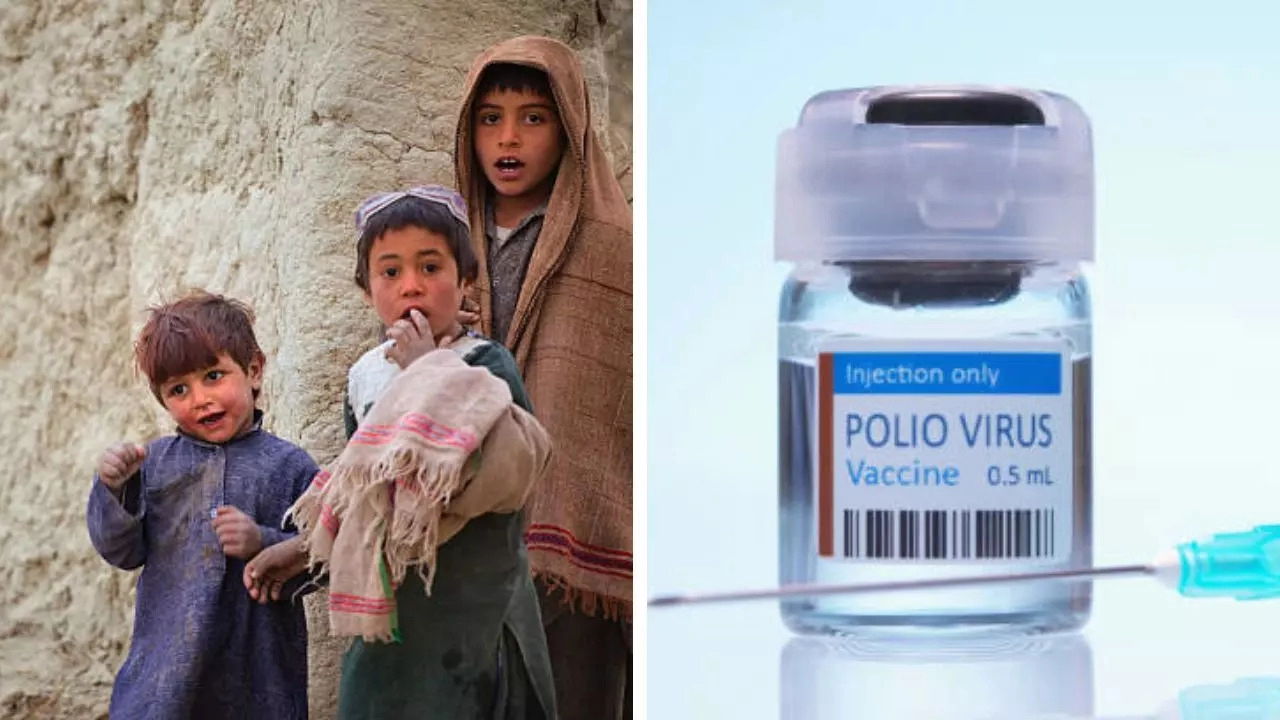Ashima Sharda Mahindra • 17 Sep 2024
UN Says The Taliban Have Suspended Polio Vaccination Campaigns in Afghanistan; How Does It Affect Children?

The WHO has confirmed 18 polio cases in Afghanistan this year, all but two in the south of the country
The United Nations has said the Taliban have suspended polio vaccination campaigns in Afghanistan – calling it a devastating setback for polio eradication. According to experts, polio virus is one of the world’s most infectious and any unvaccinated groups of children where the virus is spreading could undo years of progress.
Experts say apart from Pakistan, Afghanistan has seen a rapid spread of the potentially fatal and paralyzing disease that spreads mainly through the fecal-oral route, or less commonly through contaminated food or water. The virus multiplies in the intestines and can then invade the nervous system.
UN says it is likely that the Taliban’s decision will have major repercussions for other countries in the region and beyond. The agency said it was informed right before the September immunization campaign started. No reason was given for the suspension, and no one from the Taliban-controlled government has made any comment.
News agencies have reported that WHO officials say they are aware of discussions to move away from house-to-house vaccinations and instead have immunizations in places like mosques.
More than 18 polio cases have been reported in Afghanistan already
The WHO has confirmed 18 polio cases in Afghanistan this year, all but two in the south of the country. That’s up from six cases last year. “The Global Polio Eradication Initiative is aware of the recent policy discussions on shifting from house-to-house polio vaccination campaigns to site-to-site vaccination in parts of Afghanistan,” said Dr. Hamid Jafari from the WHO. “Partners are in the process of discussing and understanding the scope and impact of any change in current policy.”
In June this year, when the last nationwide campaign happened, Afghanistan used a house-to-house vaccination strategy for the first time in five years - a tactic that helped to reach the majority of children targeted, the WHO said. But southern Kandahar province, the base of Taliban supreme leader Hibatullah Akhundzada, used site-to-site or mosque-to-mosque vaccination campaigns, which are less effective than going to people’s homes.
Kandahar continues to have a large pool of susceptible children because it is not carrying out house-to-house vaccinations, the WHO said. “The overall women’s inclusion in vaccination campaigns remains around 20 per cent in Afghanistan, leading to inadequate access to all children in some areas,” it said.
What is poliomyelitis?
According to experts, poliovirus is highly infectious, with an incubation period of 7-10 days but can range from 4-35 days. The virus enters the body through the mouth and multiplies in the intestine. It then invades the nervous system.
According to doctors, up to 90 per cent of those infected experience no or mild symptoms and the disease usually goes unrecognized.
There are three variations of poliovirus, called wild poliovirus types 1, 2, and 3 (WPV1, WPV2, and WPV3). Wild polio types 2 and 3 have been eradicated (no longer exist), and wild polio type 1 only exists in a few parts of the world. Polio type 1 is most likely to cause paralysis.
What happens when children are not administered polio drops?
Doctors say poliovirus gets into your body through your mouth or nose and makes more copies of itself, reproducing in your throat and intestines. In some cases, it gets into your brain and spinal cord and causes paralysis. Paralysis can affect your arms, legs, or the muscles that control your breathing. You are most at risk for polio if you are not vaccinated and you:
- Live in or travel to an area where polio has not been eliminated
- Live in or travel to an area with poor sanitation
- Are under 5 years of age
- Are pregnant
Signs and symptoms of polio
Statistics say between 70-95 per cent of people infected with poliovirus do not have symptoms. And who do, have:
- Fatigue
- Fever
- Headache
- Vomiting
- Diarrhea or constipation
- Sore throat
- Neck stiffness
- Pain or pins-and-needles feeling in your arms and legs
- Touch sensitivity
- Muscle spasms
- Seizures
Get Latest News Live on Times Now along with Breaking News and Top Headlines from Health and around the world.